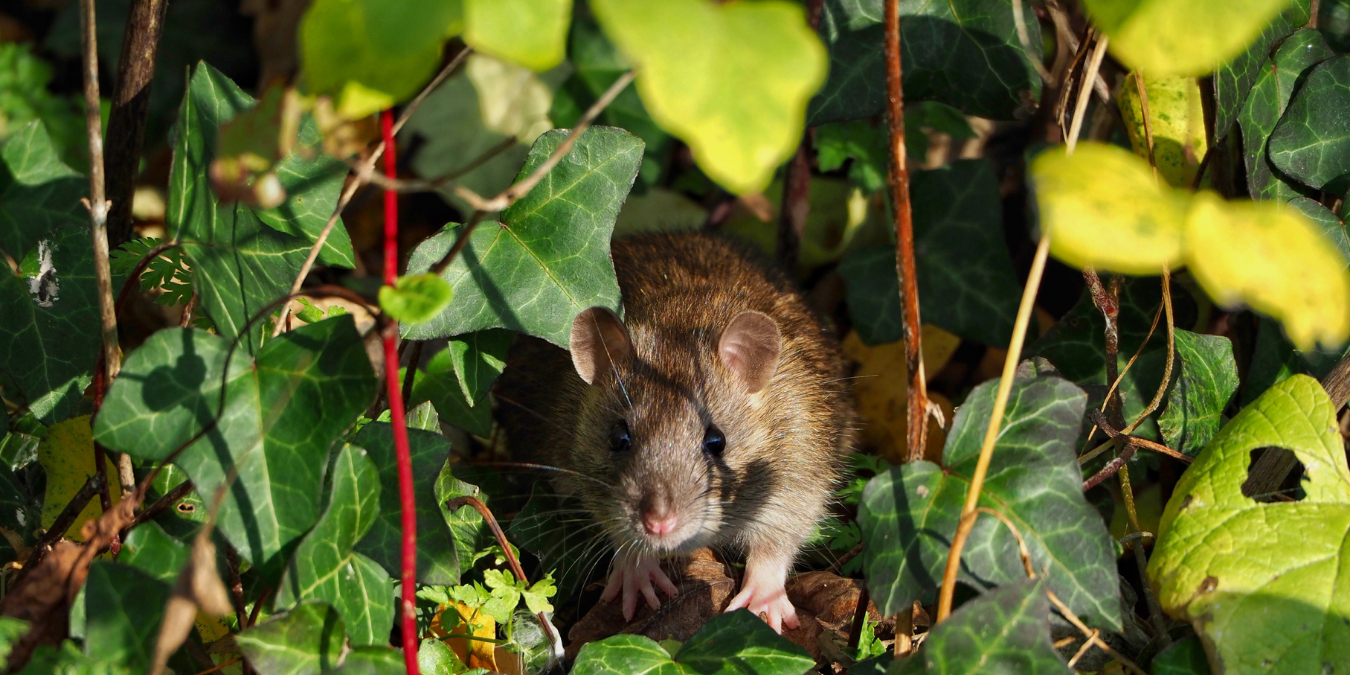How to Get Rid of Rodents in Your Garden Shed

With winter coming to a close, it’s time to start prepping your garden space for the new season. Unfortunately, cold months can bring unwanted guests into your outdoor storage spaces: rodents! If rats have invaded your garden shed over the winter, you may be wondering what it takes to get them out.
Read on for our tips and tricks on how to get rid of rodents and keep them out for good.
Why Rodents are Agents of Chaos
Damage
Rats are one of the worst pests to have in terms of damage, not only to your garden, but to structures and personal property. When rodents go in search of food, water, and shelter, they tend to leave chaos in their wake!
Chewed floorboards, holes in the wall, overturned buckets, and stolen fabrics are just the tip of the destruction iceberg. On top of ruining your property by chewing it up and rearranging it (sometimes by throwing it off of shelves!), you will find that rats and mice also poop and pee everywhere. Like, everywhere. We’re not kidding. If your stuff isn’t chewed up or shattered, it will likely get smelly and should be thrown away regardless. NASTY. But the damage is just the first of many problems.
Hazards
Rats and mice carry diseases that are transmissible to humans, including salmonella, leptospirosis, and even the actual Black Plague.
While these diseases usually spread through rat feces and urine getting in human food somehow (YUCK), some illnesses like hantavirus can be distributed in the air when dried waste breaks up during cleanup.
So what does this mean? Well, if you don’t want to catch the Black Death or some other rat-carried disease, be sure to take the following precautions and necessary steps to clean your space and keep it rodent-free in years to come.
Reclaim Your Space
Removal
First thing’s first: if you want to clean up after the rats that have invaded your space, you’ll have to get rid of them. Clearing your garden shed can be a challenge. They are stubborn and persistent guests, and they live everywhere that humans do. Here are a few tried and true methods for rodent removal:
Spook and Scare
If your space is small, it may be simple to clear out all of the big items stored there and scare any remaining invaders out of the structure through the front door. Small garden sheds and lean-tos may be easier to rid of rodents than your home or garage.
Lay out Traps
For more intense infestations or locations that are hard to clear of heavy objects, as well as infested walls and subfloors, you can always lay traps. These vary in lethality and style, but there are a few main types:
- Live Catch: Wire cages or bucket setups baited with food can be an effective way to catch rodents without harming them for those who are squeamish or just don’t want to see those cute little buggers die on their watch. Setting out a live catch trap does require finding somewhere to release the rodents once they’re caught, preferably far away from your space.
- Kill Traps: Kill traps, including snap traps and glue traps, can be effective for ridding your home or garden of unwanted visitors, especially if you have no qualms with waging war on your invaders. Unfortunately, these types of traps can have unwanted casualties; it’s not just rats and mice that may check them out. Lizards, snakes, and even birds can fall prey to such devices, especially glue traps.
- Poison: Poison is an option for people who are serious about removing rodents once and for all, but it’s not for the faint of heart and must be handled with care. There’s also more chance for collateral damage: rat poison can have a considerable impact on predatory bird populations, local cat colonies, and even your pets because a larger animal can eat the rat after it has ingested the poison. And, if the rat or mouse dies inside your walls or under your floorboards, that can result in an awful stench.
Call a Professional
You can always employ a cat–any rodent’s arch-nemesis–to free your garden space of fuzzy pests! While we don’t recommend putting your indoor, human-friendly cats outside due to their effect on local wildlife, rehoming a feral community cat to your property as part of a trap-neuter-release program can give a non-adoptable cat a new lease on life. Plus, you get a purr-fessional hunter to help you keep the rodents down!
Then again, if you’re concerned about your neighborhood birds falling prey to a new community cat, there are always the human professionals. If your infestation is bad enough, or you just don’t know how to handle them on your own, don’t rule out calling an exterminator. They can help you locate problem areas, make an action plan, and decide which method suits your circumstances.
Cleanup
You’ll find that the work isn’t done once the rats are gone. Cleanup may suck, but it’s an essential step to getting your space usable and safe again, so don’t skip it.
Safety First
Don’t forget your safety gear. Rubber cleaning gloves, a face mask to keep you from breathing in poop particles, and potentially even a pair of safety glasses won’t hurt! Don’t forget to wash your hands when you’re done, especially before eating, to ensure you don’t get sick.
Throw it Away
Anything that can go, let it go. Chances are, your rodent guests were partying on everything, which means they got their filthy paws on it all. Don’t be afraid to throw out cheap pots, ripped-up bird netting, or chewed bottles of fertilizer.
Clean with Bleach
Anything you decide you can’t throw out should be thoroughly cleaned. A 10:1 solution of water and bleach effectively neutralizes diseases, but if the space is tight, keep an eye on your breathing as you may get light-headed. Soak all surfaces thoroughly and let them air dry for the best effect.
Paint Porous Surfaces
Any porous surfaces, like raw wood, should be painted over just in case. Consider it a bonus! You get to pick a new color for your garden shed and make it your own!
Make Necessary Repairs
Check out all corners and crevices of your garden shed, garage, or other structure to be sure you know where the rodents were getting in. Repair anything that was chewed, including holes they might be using to get in. Don’t forget to check the lights and wires! Anything exposed has the potential to be chewed, and damaged wires are a fire hazard.
Prevention
Now that your shed is clear of rats and cleaned for your use, you want to ensure those nasty invaders don’t make their way back in. There are a few things you can do to ensure you don’t go through this mess again:
Minimize Hideouts
Rats and mice love little secluded corners and piles of stuff to hide in. Use this opportunity to reorganize your storage and limit the spaces they could call home.
Preventative Methods
There are some natural and manmade prevention methods specific to rodents. If you’re looking for a non-harmful option, spraying peppermint essential oil at likely entrances can help keep rats from smelling anything tantalizing stored in your shed, as well as to interrupt their scent trails.
There are commercial sprays available, as well as plug-in devices that make a sound out of human hearing range that is annoying to rodents, so find what works best for you!
Careful Storage
Store items of interest in rat-proof containers. Stuff like birdseed for your feeders, dog treats, fragrant fertilizer, and even scraps of fabric are all things rodents find delightful. Bin or box it up, and consider using containers made of metal or glass to discourage chewing where possible.
Keep Monitoring
The best prevention is keeping a sharp eye out for more signs of re-infestation. Little chewed corners, shredded paper, and droppings left behind are good indicators that a rat has come scouting. If you catch them early, you can deploy traps and more preventative measures as needed to ensure you don’t have to deal with the post-party cleanup again.
Take Back What’s Yours
Getting rodents out of your shed or other garden spots may seem like a daunting task. Still, it’s worth it, in the long run, to rid yourself of the worry of these little vandals destroying your property, stealing your supplies, and posing a risk to your health and safety with their poor hygiene. If you have an infestation, we hope these tips help you take the necessary steps to reclaim your space and keep these pests out!
Check out our blog for more garden tips and tricks!






